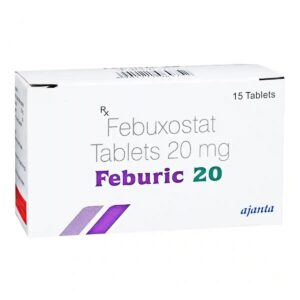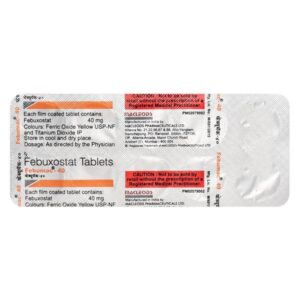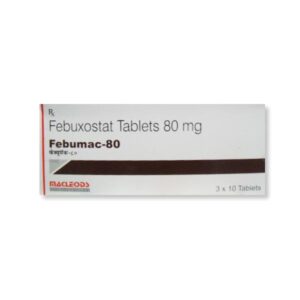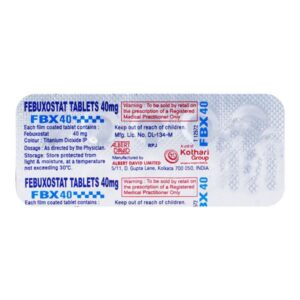ANTI GOUT
Anti-gout medicines are specifically designed to treat gout, a type of arthritis caused by the accumulation of uric acid crystals in the joints. This category includes various medications that help relieve symptoms and prevent future gout attacks. Common examples of anti-gout medicines include nonsteroidal anti-inflammatory drugs (NSAIDs), such as indomethacin and naproxen, which reduce inflammation and pain. Colchicine is another widely used medication that helps alleviate gout symptoms by reducing the inflammation caused by uric acid crystals. Additionally, corticosteroids, like prednisone, may be prescribed orally or injected into the affected joint to reduce inflammation during acute gout attacks. Lastly, urate-lowering therapy (ULT) medications, such as allopurinol or febuxostat, are used for long-term treatment to prevent future gout attacks by lowering uric acid levels in the body. It is important to consult a healthcare professional before starting any anti-gout medication to ensure proper dosage and management of any potential side effects.




